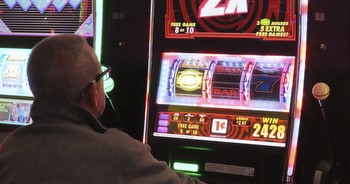Surge in New Jersey Internet Gambling Revenue
Thanks to the internet, it is the couch potato era. Like every other digitized venture, most people have come to favor the convenience of online gambling and crypto casinos over in-person gambling. So long as something can be done from the comfort of home, most people would rather do it from home than visit brick-and-mortar establishments.
Despite being one of the most recent developments in the gambling industry, online casinos account for a large share of traffic coming into the industry. Aside from the obvious reasons—accessibility, a wider selection of games, and convenience—policy-making also played a big role in the continued upward trajectory of online gambling, especially in New Jersey.
New Jersey’s progressive online gambling laws made it one of the first states to legalize online gambling in 2013. Due to its large markets and standard regulations, it has remained a top-tier choice for online gambling. Following Gov. Phil Murphy’s extension of online gambling authorization laws late last year, the state continues to provide a favorable atmosphere for online gambling to flourish.
And flourish it did
With online gambling seeing a 110% increase in revenue in the past four years alone, the level of growth it has gained since its inception is undeniable. For the year-to-date period, a report released on April 16th, 2024, by the New Jersey Division of Gaming Enforcement shows that Internet Gaming revenue reported by casinos and their partners was $197.2 million. One of the main catalysts for this online success is the innovation of cryptocurrencies.
The Cryptocurrency Boom!
Most players find the anonymity, ease of transaction, and security of cryptocurrencies, coupled with the thrill of gambling, very exciting. Since New Jersey passed the law legalizing online gambling in 2013, casinos like Lucky Block and others from this list by Michael Graw have grown in popularity among players. In fact, there are now well over twenty different online casinos in New Jersey.
According to Jane Bokunewicz, who studies the Atlantic City gambling market as the director of the Lloyd Levenson Institute at Stockton University,
“Remote gaming options continue to be critical for Atlantic City’s gaming operations, especially in the shoulder months when seasonal weather patterns are most likely to keep gamblers at home.”
With this and the cryptocurrency boom, it is no surprise that internet gambling revenue continues to skyrocket in Atlantic City, New Jersey.
In adapting to the paradigm shift resulting from global digitalization, many traditional casinos have diversified their playing spaces, making way for an online branch alongside their in-person establishments. All nine major land-based casinos in New Jersey — Ocean Casino, Hard Rock, Bally’s, Resorts Casino, Harrah’s, Tropicana, Golden Nugget, Borgata, and Caesars all have online subsidiaries.
A quick look at the in-person revenues, and you immediately see why.
The nine casinos collectively generated $239 million in revenue, an increase of no more than 5% from the year before. This is only exceeding the total that all nine gained before March 2019 by a hairbreadth, a margin not wide enough to be comfortably referred to as growth.
In the report released by the Division of Gaming Enforcement, Tropicana had $16.6 million, seeing a 3.1% decrease; Borgata saw a profit of $53.6 million, down by 6.7%; Hard Rock earned $41.1 million, up 9.6%; Ocean, one of the only three casinos to see an increase earned a little over $31 million, going up over 18% whereas Harrah’s earned $18.2 million, down 14.7%. Resorts saw $12.2 million, seeing a downturn of 3.6%; Caesars was $16.4 million, down 13.7%; Golden Nugget had $11.6 million, seeing growth of 4%, and Bally’s won $10.6 million, going down over 13%.
It’s not just crypto
It’s easy to say it’s just crypto, but that would be an oversimplification. Other forces are responsible in some way for the struggles of in-person casinos.
One such reason could be the recent extension of the legalization of internet gaming for another five years in 2023. This singular act shows Governor Phil Murphy and his government’s acceptance of internet gaming, calming the nerves of would-be investors in the industry, allowing for more investment, and essentially driving growth.
Lastly, it’s just more convenient. There are not too many ways to describe internet gaming than convenience. They provide players with the opportunity to play a vast number of games anywhere they might be. Couple this with bonuses that provide an opportunity to earn free rounds and free spins to earn more money, and you see why internet gaming has a leg up on brick-and-mortar establishments.
Both Sides of the Coin
The surge is both a blessing and a curse, depending on who you are and how you choose to look at it.
Smaller casinos in the region may be forced to close down shop or cut costs aggressively to stay in the market. Bigger enterprises, however, would be thankful, as internet gambling is keeping their profits in the green and their investors happy.
This is not to say they are not trying to restore things to how they used to be, that is, more patronage from walk-in customers. This is primarily because they have to split the profits with third parties that share technologies with them, allowing them to offer their services to online customers.
Compared to online casinos, particularly crypto casinos, which have set out from the start to offer their services only online and have figured out a way to cut down costs and maximize profits due to the decentralized nature of the blockchain, traditional establishments find themselves in relatively unchartered territory. They find themselves in a telefax position, where they have to keep up with the times or become relics of the past.
It will appear they are left with little to no choice. Most players, especially crypto enthusiasts, have found little need for in-person casinos since they can access all games found at brick-and-mortar casinos online without physically visiting the establishment.
What does this mean? Is this the end of traditional casinos as we know them? Have these casinos survived for nearly four centuries because they are adaptable or because they stick with their age-old formula? Is internet gaming a phase that will phase out, unable to stand the test of time? There are so many questions that time will have to answer.

















